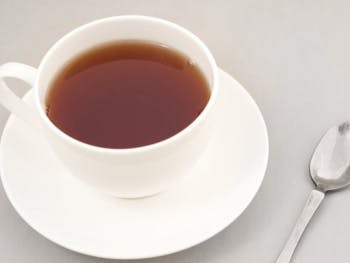EXPERT COMMENT LAST UPDATED : 21 APRIL 2023

Milk in tea has become a tradition in the United Kingdom - but if it’s real health benefits you want, then drink it black, says a leading food and nutrition scientist.
Tea is a national passion in the United Kingdom and more than 100 million cups are drunk every day. On Friday 21 April, the country celebrates National Tea Day.
Dr Huda Al-Kateb, Programme Leader, BSc Food and Nutrition at Birmingham City University, said: “Tea, in all its varieties and types, has been used worldwide for holistic and medicinal purposes. Most traditional teas do not contain a significant amount of nutrients. However, they are rich in constituents that can help prevent disease, improve health and cure illnesses.
“Research has shown that consuming two or more cups of tea per day can lower the risk of death by as much as 13%. Research has also shown that tea may help reduce cardiovascular disease, help lower blood pressure, help reduce ischemic heart disease and stroke, help reduce Type 2 diabetes, help reduce some cancers, and help lower body fat and reduce obesity.
“Milk in tea is a tradition in the UK. In other parts of the world, tea is usually drunk black. Research suggests adding milk reduces its beneficial impact. That’s because milk contains proteins and fats that reduce the effectiveness of antioxidants, which can improve heart and gut health. Antioxidants can also slow the ageing process. So if it’s health benefits you want from tea, drink it black.”
Dr Al-Kateb warns that too drinking too much tea is not a good idea.
“Most healthy individuals can drink up to four cups of tea (800–1000 ml) daily without any adverse effects, but some may experience side effects at lower doses if they have a health condition.
“Most of the known side effects associated with drinking tea are related to caffeine and tannin. If too much caffeine is ingested, it can cause an irregular heartbeat, have a negative impact on sleep and increase levels of anxiety. Caffeine and other components in tea can also interact with some medications and drugs, so it is imperative to consult a doctor.”